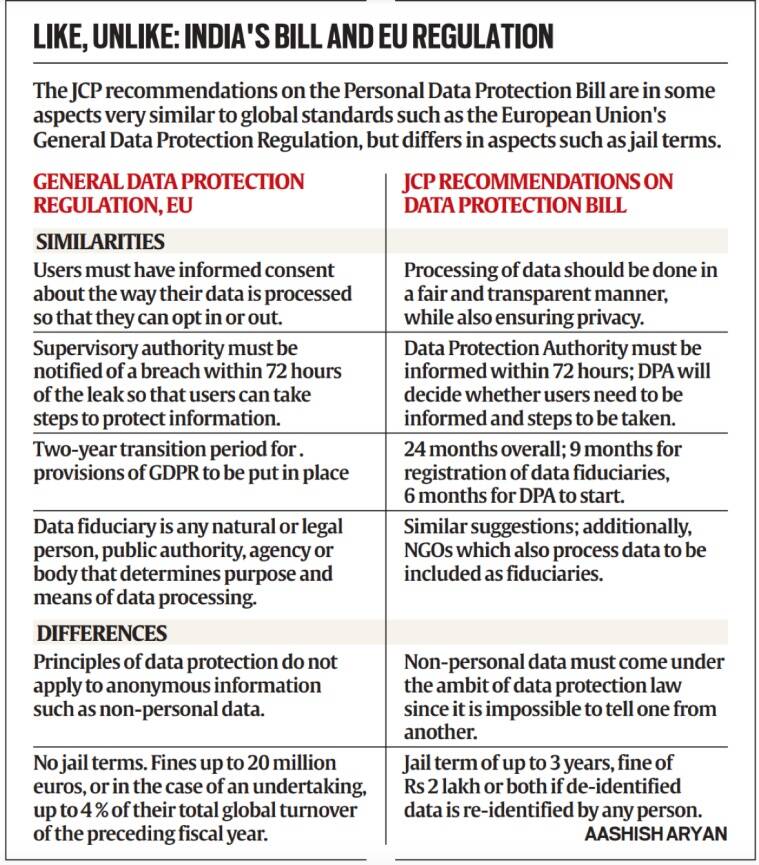7667766266
enquiry@shankarias.in
The Joint Committee of Parliament (JCP) on the Personal Data Protection Bill has tabled its report.
Section 79 in The Information Technology Act, 2000
- It provides for exemption from liability of intermediary in certain cases.
- An intermediary shall not be liable if
- The function of the intermediary is limited to providing access to a communication system over which information made available by third parties is transmitted or temporarily stored or hosted.
- the intermediary does not-
- Initiate the transmission.
- Select the receiver of the transmission, and
- Select or modify the information contained in the transmission.
- However an intermediary shall be liable if
- The intermediary has conspired or abetted or aided or induced, whether by threats or promise or authorise in the commission of the unlawful act.
- or on being notified by the appropriate Government if the intermediary fails to expeditiously remove or disable access to that material.

Reference